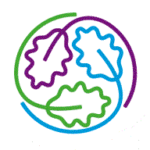Profile
Sarah Chalmers-Page
-
Education:
GCSEs and A levels in a state comprehensive in Essex, first degree in Psychology from Edinburgh. NHS Graduate Scheme – which at the time offered an MSc in Healthcare Leadership and Management (jointly awarded by Manchester and Birmingham Universities). A post graduate certificate in health economics from the University of Aberdeen.
-
Qualifications:
A level Psychology, History and English Literature
MA Psychology
MSc Healthcare management and leadershipPGC Health Economics.
-
Work History:
1998-2002 various jobs as a waitress, barmaid and nursing assistant
2002-4 Residential assistant manager, learning disability services in Massachusetts, USA
2004-6 Assistant Psychologist, Essex County Council
2006-8 NHS Graduate Management Scheme, Swindon
2008-2010 Executive Officer, NHS Swindon
2010-2014 Project Manager/Programme Manager, National Institute for Health and Care Excellence
2014-2015 various voluntary roles, notably for University Hospitals South Manchester working on their strategic partnership with a hospital in Northern Uganda
2015-present day Freelance manager, working on hospital strategies, service evaluations, service improvements and business cases across health and social care.
-
Workplace:
All sorts of organisations across health and social services. But I mostly physically work from home.
-
About Me:
I am originally an NHS manager. I do not have any medical or nursing qualifications; I used to want to be a psychologist, but it turned out I was better at being a manager! I finished a degree in psychology, then worked in the USA for two years looking after adults with learning disabilities. When I came back, after one job as an assistant psychologist, I switched to the NHS graduate management scheme. I am always really keen to talk to people about all the jobs you can do in the NHS, helping people and promoting health, if you do not want to be a nurse or a doctor, and why these jobs are really important.
-
Read more
I did my first degree in psychology, which was useful because it taught me a lot about people’s behaviours and the different things that can affect our health outside medicine. It also taught me statistics; I didn’t do A level maths, so this was a bit of a learning curve, but it’s been really useful ever since. Not just for work – it’s useful to be able to see through some of the wilder claims made in science stories in newspapers! After that it took me a while to work out what I wanted to do, but I eventually got a place on the NHS graduate management scheme. From that I got a management degree, and I was able to find a job where I could help people, improve patient care and make life easier for people without needing a medical or nursing degree. It’s always been important to me to help people, so I love that I can do that.
It also gave me the chance for at least one adventure; I spent six months volunteering for an educational link between a big English hospital and a Ugandan hospital, which meant I could go to Uganda and live there for a while. That was an amazing opportunity, and I met some really inspiring people.
I now work on a freelance basis; a lot of my work is with health in Nottingham, but I also sometimes work for other people, like a housing charity in Glasgow, or a health technology start up in London. I like having that variety, and it lets me fit my hours around my two children.
-
My pronouns are:
She/her
-
My Work:
I work with the medical and nursing teams to look at how successful their projects have been, what we can do to make them better next time and identify any problems with them that they can fix.
-
Read more
I use interviews, research and surveys to help people tell us whether the projects we do are working. This helps us to make sure that we are spending tax money well – if we are not helping people enough with our projects we can do things differently next time. I am very passionate about listening to the people who know more than I do about situations – NHS and social care workers who spend the most time working with patients, and wherever we can patients themselves. It’s no good staying in an office and assuming I know best! The main skills I use are listening, being able to critically think about research and how applicable it is, statistics and report writing (which is basically the same skills I learned writing essays in GCSE history and English, although I hope that I am still getting better as time goes on!).
-
My Typical Day:
I drop my two children off at school, come home, and check my emails. After that I decide what work is most urgent that day; I usually have 5-6 projects that need my attention so I need to work out what needs done first. After that a typical day might include reading research papers, phoning colleagues and asking them how their work is going, designing a survey or writing up our results. I usually finish at about 2.45 to pick my children up from school, although I often start again at 8pm after they are in bed to finish up. Because I freelance, I take a note of how long I spend on each project and only get paid for the hours I work. On one hand that means I am free to decide how I spend my time – on the other I don’t get paid for breaks and holidays.

